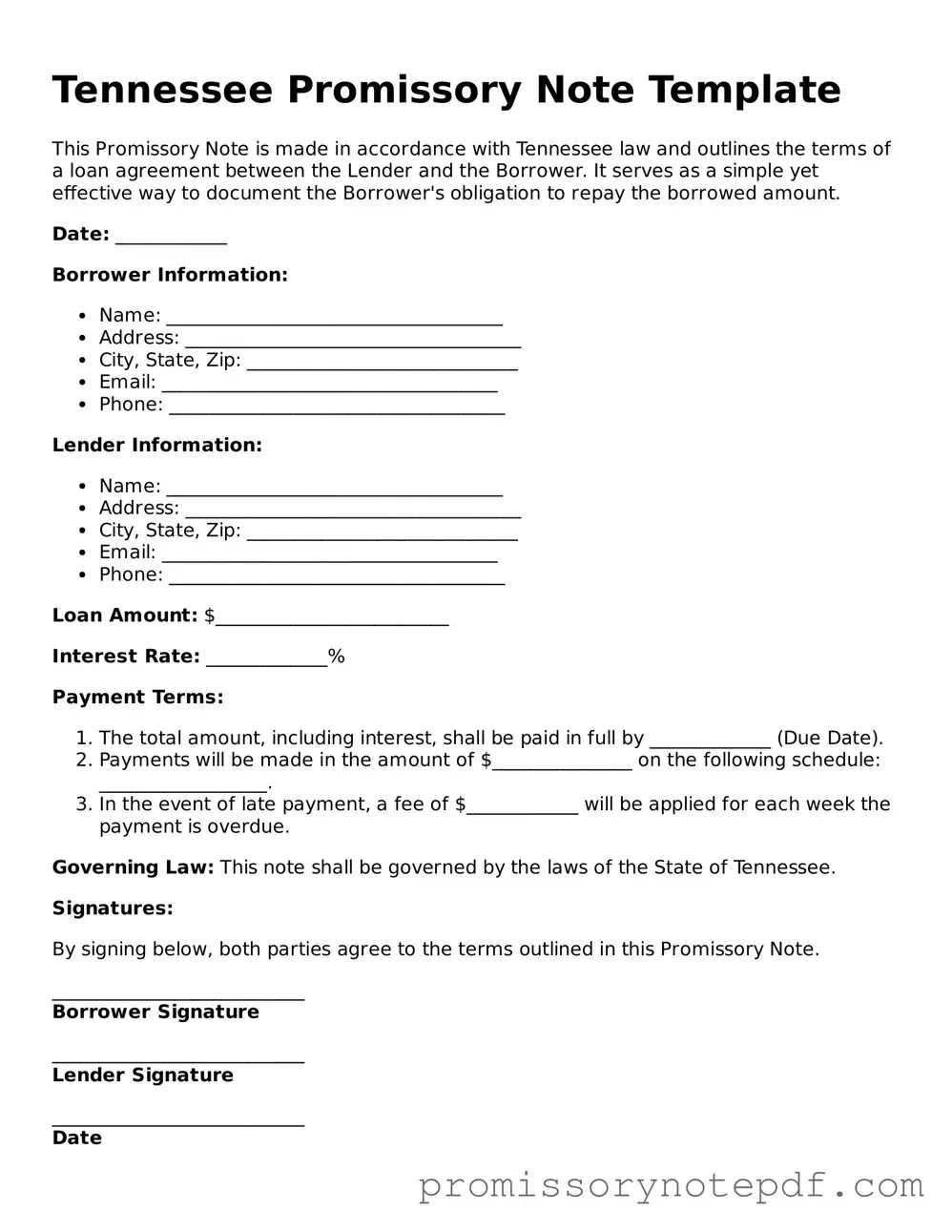The Tennessee Promissory Note is similar to a Loan Agreement. Both documents outline the terms of a loan, including the amount borrowed, interest rate, and repayment schedule. A Loan Agreement, however, is typically more comprehensive. It may include additional clauses regarding collateral, default consequences, and borrower rights. While a Promissory Note focuses primarily on the borrower's promise to repay, a Loan Agreement can provide a broader framework for the entire lending relationship.
Another document that shares similarities is a Mortgage. A Mortgage secures a loan with real property, while a Promissory Note represents the borrower's commitment to repay the loan. In essence, the Promissory Note is the promise, and the Mortgage is the security. If the borrower defaults, the lender can enforce the Mortgage to recover the owed amount, making both documents crucial in real estate transactions.
A Credit Agreement also resembles a Promissory Note. Both documents define the terms under which money is lent. However, a Credit Agreement usually involves a line of credit rather than a fixed loan amount. It details how much credit is available, repayment terms, and fees. In contrast, a Promissory Note is typically used for a specific loan amount with a defined repayment schedule.
Similar to a Promissory Note is a Personal Loan Agreement. This document outlines the terms of a personal loan between individuals or entities. Like a Promissory Note, it includes the loan amount, interest rate, and repayment terms. However, a Personal Loan Agreement may also include personal details about the borrower and lender, making it more personalized than a standard Promissory Note.
A Business Loan Agreement is another related document. This agreement is tailored for business loans and outlines the terms specific to commercial transactions. While both documents establish the borrower's obligation to repay, a Business Loan Agreement often includes clauses related to business operations, financial reporting, and potential consequences of default, making it more complex than a typical Promissory Note.
The Installment Agreement is also akin to a Promissory Note. Both documents facilitate a structured repayment plan. An Installment Agreement often covers the sale of goods or services, detailing how the buyer will pay over time. In contrast, a Promissory Note is more focused on the borrowing aspect, emphasizing the borrower's promise to pay back the loan amount.
Another document that shares characteristics with a Promissory Note is a Secured Note. This type of note is backed by collateral, similar to how a Mortgage secures a loan. The key difference lies in the type of collateral and the terms of the note. A Secured Note provides the lender with a claim to specific assets if the borrower defaults, adding an extra layer of security compared to a standard Promissory Note.
Lastly, a Deed of Trust is comparable to a Promissory Note in the context of real estate transactions. While a Promissory Note details the borrower's obligation, a Deed of Trust provides a legal framework for securing the loan with property. It appoints a trustee to hold the title until the loan is paid off, ensuring that the lender has recourse in case of default, much like a Mortgage.
